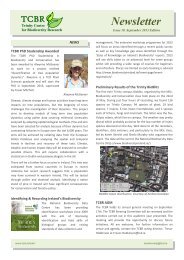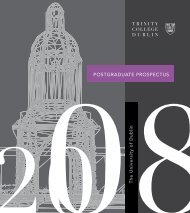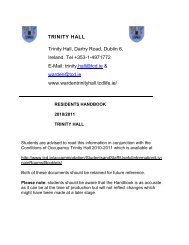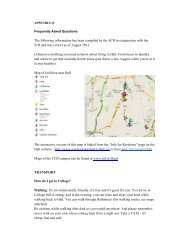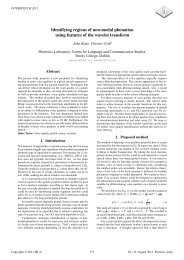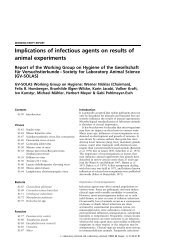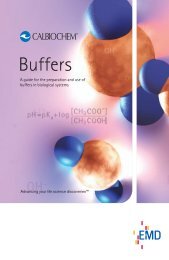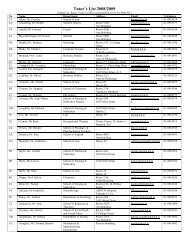Senior Freshman Programme 2013/2014 - Trinity College Dublin
Senior Freshman Programme 2013/2014 - Trinity College Dublin
Senior Freshman Programme 2013/2014 - Trinity College Dublin
Create successful ePaper yourself
Turn your PDF publications into a flip-book with our unique Google optimized e-Paper software.
animals. The module concludes with a lecture and then a class debate on<br />
the ethics of animal-human interactions.<br />
Learning Outcomes<br />
On successful completion of this module, the student will be able to:<br />
• Place the study of behaviour in context related to a historical<br />
perspective.<br />
• Describe the range of factors that influence animal behaviour, linking<br />
the understanding of behaviour to a number of other biological study<br />
areas.<br />
• Outline the basics of learning, both through classical mechanisms and<br />
through cultural transmission.<br />
• Discuss the concept of animal intelligence and our understanding of<br />
consciousness in non-humans.<br />
• Form a reasoned ethical position about human interactions with<br />
animals.<br />
• Build from a sound basis of understanding of basic behavioural<br />
ecological concepts.<br />
BY2208 Genetics<br />
(Coordinator: Dr K Mitchell - Genetics & Microbiology:<br />
kevin.mitchell@tcd.ie)<br />
5 credits<br />
The module runs for five weeks in the first half of the second semester<br />
(Hilary Term) of the academic year and comprises of four lectures and one<br />
three-hour practical session per week (approx. 35 hours total contact<br />
time).<br />
BY2208 provides an introduction to analytical, molecular and cellular<br />
genetics. Topics will include: DNA and RNA synthesis and the genetic<br />
code; principles of gene expression and the mechanisms that control it -<br />
with illustrations of importance in development and behaviour; human<br />
genetic analysis - deciphering the genetics of disease - and insights from<br />
the human genome project; variation in genetics among human<br />
populations; the genetic basis of cancer. A parallel practical course will<br />
introduce techniques in molecular genetics and bioinformatics.<br />
Learning Outcomes<br />
On successful completion of this module, the student will be able to:<br />
• Describe the fundamental molecular principles of genetics<br />
• Interpret the structure and function of DNA, RNA and protein<br />
• Explain the way in which genes code for proteins<br />
• Demonstrate the relationship between phenotype and genotype in<br />
human genetic traits.<br />
• Describe the basics of genetic mapping<br />
• Show how gene expression is regulated<br />
• Describe the genetic basis of cancer<br />
14



